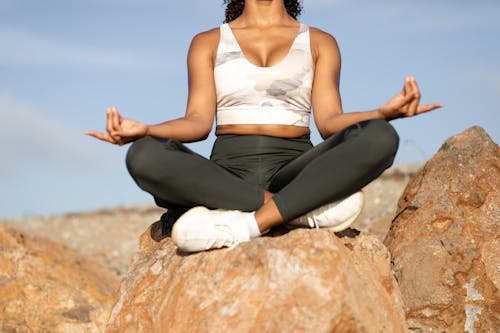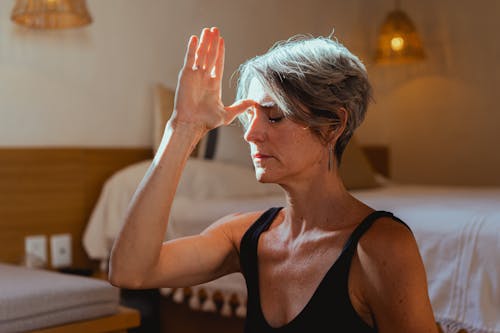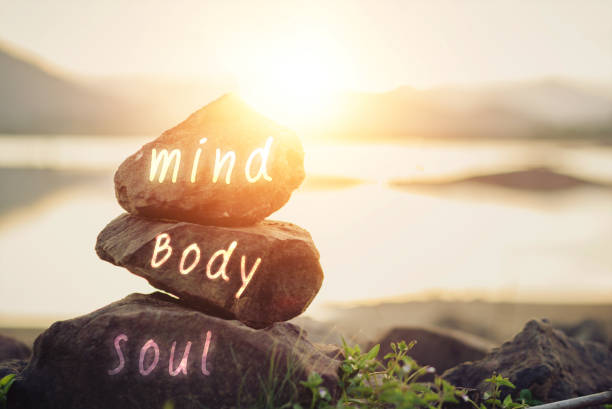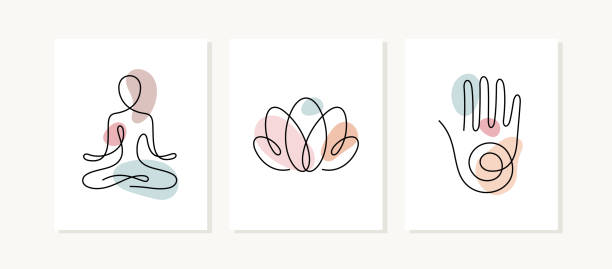YOU NEED TO START MEDITATING: The Benefits of Meditation for Mental Health
Mental health is a crucial aspect of overall well-being, and many people struggle to maintain it in today's fast-paced and stressful world. If you're reading this article, you're probably interested in learning more about how meditation can benefit your mental health. Meditation has been shown to have numerous benefits for mental health and in this article, we will explore the benefits of meditation for mental health and tips on how to incorporate mindfulness into your daily routine.
Meditation is not just for monks and spiritual gurus, it is a practice that has been around for centuries, and it involves training the mind to focus on the present moment. This practice has gained popularity in recent years as a way to improve mental health and overall well-being. The benefits of meditation for mental health are numerous, and anyone can incorporate mindfulness into their daily routine with a little practice and dedication.
I have struggled with anxiety and depression before, and I can attest to the power of meditation in improving mental health. For months, I relied on medication and therapy to manage my symptoms, but it wasn't until I started practicing meditation regularly that I truly started to see a difference. Now, I meditate every day and it's become an essential part of my self-care routine.
So, what is meditation?
Simply put, meditation is the act of focusing your attention on a specific object, thought, or activity to achieve a clear and calm mental state. It's a way to train your mind to be present in the moment and to let go of distracting thoughts and feelings. It is typically practiced while sitting, but can also be done while standing or walking. There are many types of meditation, including mindfulness, loving-kindness, and transcendental meditation, among others.
But why is meditation so important for mental health? Here are some of the benefits:
- Reducing Stress and Anxiety: Meditation has been shown to reduce stress and anxiety by promoting relaxation and reducing the body's physiological response to stress. This can lead to a decrease in cortisol levels, which is the hormone that regulates the body's stress response.
- Improving Mood: Meditation has been shown to improve mood and reduce symptoms of depression by promoting the release of feel-good hormones such as dopamine and serotonin. It can also increase the activity in the prefrontal cortex, which is the part of the brain responsible for regulating emotions.
- Increasing Focus and Concentration: Meditation has been shown to increase focus and concentration by improving working memory and attention. This is because meditation involves training the mind to focus on a particular object or thought, which can help improve cognitive function.
- Improving Sleep Quality: Meditation has been shown to improve sleep quality by reducing insomnia and promoting relaxation. This is because meditation can help calm the mind and body, which can lead to a more restful night's sleep.
- Boosting Immune System Function: Meditation has been shown to boost immune system function by reducing stress and promoting relaxation. This can lead to an increase in immune system function, which can help the body fight off infections and diseases.

Now, I know what you might be thinking: "Okay, this all sounds great, but how can I incorporate meditation into my daily routine?" Well, don't worry, my friend, I've got you covered. Here are some tips to get you started:
- Set aside time for meditation: One of the best ways to incorporate mindfulness into your daily routine is to set aside time for meditation. Whether it's first thing in the morning or right before bed, find a time that works for you and stick to it.
- Choose a comfortable meditation position: You don't have to sit cross-legged on the floor to meditate. Find a comfortable position, whether it's sitting in a chair or lying down, and focus on your breath.
- Use guided meditation: If you're new to meditation, guided meditation can be a great way to get started. There are plenty of apps and videos available that can guide you through a meditation session.
- Practice mindfulness while doing everyday activities: You don't have to set aside specific time for mindfulness. You can practice it while doing everyday activities such as washing the dishes or taking a shower. Focus on the sensations, smells, and sounds of the activity and be present in the moment.
- Practice mindful breathing: Mindful breathing is a technique where you focus on your breath and observe it without judgment. You can do this while sitting or even while doing other activities like walking or exercising.
- Be present in the moment: When you're doing something, be fully present in the moment. Don't let your mind wander to the past or the future. Focus on the task at hand and give it your full attention.
- Take breaks throughout the day: Taking breaks throughout the day can help you reset and refocus. Take a few minutes to step away from your work and do something that brings you joy. This could be going for a walk, listening to music, or just taking a few deep breaths.
- Practice gratitude: Practicing gratitude is a great way to cultivate mindfulness. Take a few minutes each day to reflect on what you're grateful for. This could be as simple as appreciating a sunny day or being grateful for a kind gesture from a friend.

So, how can you get started with meditation? Here are a few tips:
- Find a quiet place to meditate: Whether it's a spare room in your house or a quiet corner at work, find a place where you can meditate without distractions.
- Use props to help with meditation: If you have trouble sitting still or staying focused, try using props like a cushion or blanket to help you get comfortable.
- Start with short meditation sessions: Don't try to meditate for hours on end right off the bat. Start with short sessions, maybe just a few minutes at a time, and gradually increase your meditation time as you get more comfortable.
- Find a meditation group: If you're looking for some extra support and motivation, consider joining a meditation group or class.
Now, I know starting a new habit can be tough, and there may be some challenges and obstacles along the way. But don't worry, my friend, I've got some solutions for you.
If you're having trouble staying motivated to meditate, try setting reminders or scheduling meditation time into your calendar, just like any other appointment. You can also try practicing with a friend or accountability partner for added motivation.
Distractions are a common challenge during meditation but don't worry, it's normal! When your mind starts to wander, simply acknowledge the thought and gently bring your focus back to your breath or mantra. It may take some time and practice, but over time you'll find it easier to quiet your mind during meditation. If you're struggling with discomfort or pain during meditation, try adjusting your posture or finding a more comfortable position. You can also try using props like cushions or blankets to support your body. Remember, the goal of meditation is not to suffer through discomfort, but to find a sense of calm and relaxation.
If you're struggling with discomfort or pain during meditation, try adjusting your posture or finding a more comfortable position. You can also try using props like cushions or blankets to support your body. Remember, the goal of meditation is not to suffer through discomfort, but to find a sense of calm and relaxation.
Finally, don't be too hard on yourself if you miss a day or struggle to maintain your meditation practice. Remember that forming a new habit takes time and consistency, so be patient and gentle with yourself. Celebrate your successes and keep going, even if progress feels slow at first. With dedication and practice, you'll be able to experience the many benefits of regular meditation practice.
Here are some FAQs about Meditation
Q1. How long should I meditate each day?
A: It's recommended to start with just a few minutes each day and gradually increase the time as you become more comfortable with the practice. Ideally, aim for 10-20 minutes of meditation per day.
Q2. Can meditation help with anxiety?
A: Yes, meditation has been shown to reduce anxiety by promoting relaxation and reducing the body's physiological response to stress.
Q3. What is the best time of day to meditate?
A: The best time of day to meditate is subjective and depends on personal preference. Some people prefer to meditate first thing in the morning, while others find it helpful to meditate before bed. Q4. Do I need special equipment to meditate?
Q4. Do I need special equipment to meditate?
A: No, you do not need any special equipment to meditate. You can meditate anywhere, at any time, in any position that is comfortable for you.
Q5. Can meditation be harmful?
A: Meditation is generally considered safe for most people. However, if you have a history of mental health conditions, it's important to talk to your healthcare provider before starting a meditation practice.
In conclusion, incorporating mindfulness and meditation into your daily routine can have a huge impact on your mental health and overall well-being. By starting small, finding a comfortable position, and using guided meditation or technology, you can make meditation a part of your daily routine. And remember, it's normal to face challenges along the way - stay motivated, stay focused, and keep practicing. Your mind (and body) will thank you.
Thanks for reading and remember to stay awesome, stay inspired, and stay true to yourself.



































































